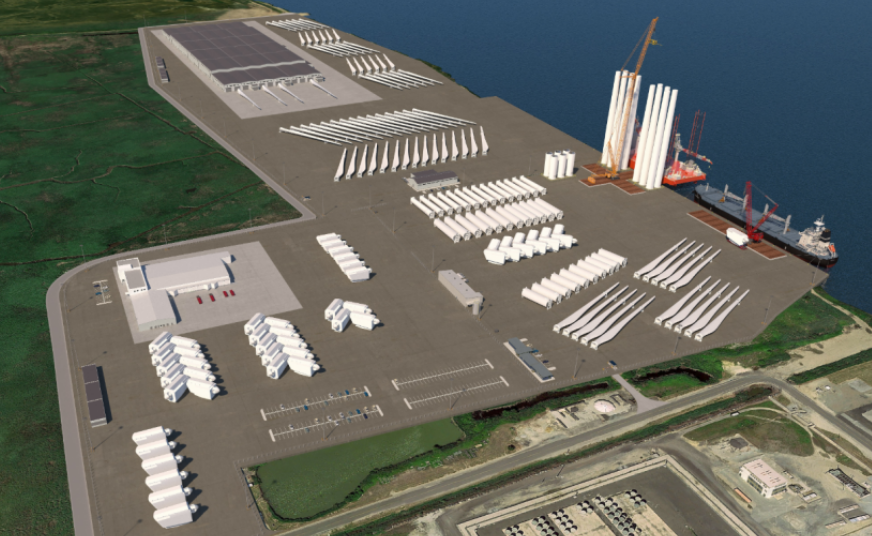
As the world shifts towards renewable energy sources, offshore wind power has emerged as one of the most promising options. However, the development of offshore wind farms requires extensive infrastructure, and ports play a crucial role in this process. In this article, we will discuss the strategic importance of ports in offshore wind development and why it is crucial for the government and the private sector to acknowledge their role in this sector’s growth.
Offshore Wind Development and the Role of Ports:
Offshore wind farms require extensive infrastructure, and ports play a vital role in the development and maintenance of this infrastructure. The components of offshore wind farms, including turbines, blades, and other equipment, are usually too large to be transported by road or rail, and hence, require sea transportation. Ports are the only access points for transporting these components to the offshore wind farm sites.
Ports are also essential for the assembly, commissioning, and maintenance of offshore wind turbines. They provide storage facilities for the components, such as blades, nacelles, and towers, and enable the assembly of these components into complete turbines. Once assembled, the turbines are transported to the offshore wind farm sites for installation.
Moreover, ports provide a base for maintenance vessels that transport maintenance crews and equipment to the offshore wind farms. The vessels require a safe and stable base from which to operate, and ports provide such a base. The availability of ports in close proximity to offshore wind farms ensures quick and efficient maintenance and repair work, minimizing downtime and maximizing energy production.
The Importance of Acknowledging the Strategic Role of Ports:
Acknowledging the strategic role of ports in offshore wind development is crucial for the sector’s growth. The development of offshore wind farms requires significant investment, and the availability of ports is a critical factor that investors consider. A lack of ports in close proximity to offshore wind farm sites can significantly increase the transportation and logistics costs, making the projects economically unfeasible.
Moreover, acknowledging the strategic role of ports can attract investment in port infrastructure, further improving their capabilities and enabling the development of larger offshore wind farms. This, in turn, can lead to the creation of new jobs and economic growth in the regions where the ports are located.

